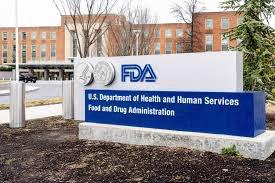 On October 24th, 2023, the U. S. Food and Drug Administration (FDA) issued the annual Pesticide Residue Monitoring Program Report for Fiscal Year 2021. The report dealt with assays of 1,367 human food samples and 80 animal food samples collected from October 1st, 2020, to September 30th, 2021.
On October 24th, 2023, the U. S. Food and Drug Administration (FDA) issued the annual Pesticide Residue Monitoring Program Report for Fiscal Year 2021. The report dealt with assays of 1,367 human food samples and 80 animal food samples collected from October 1st, 2020, to September 30th, 2021.
The first issue of contention is the delay in reporting results. Surely the FDA could report on the results within a year of collection of samples. The second issue is the paucity of assays. The FDA maintains that this was due to COVID. An unconvincing excuse, also used to justify failure to audit manufacturers. Basically as much food was consumed in 2021 as in the preceding and subsequent years, supermarkets were open, manufacturers were delivering products to distribution centers and importers were receiving containers of imported food products.
 With respect to results, 96.7 percent of domestic samples and 89.3 percent of imported human food samples complied with EPA tolerances. Thirty-five percent of domestic samples and 45 percent of imported samples yielded no detectable pesticide residues. The differential between domestic and imported samples should be cause for concern and result in appropriate action.
With respect to results, 96.7 percent of domestic samples and 89.3 percent of imported human food samples complied with EPA tolerances. Thirty-five percent of domestic samples and 45 percent of imported samples yielded no detectable pesticide residues. The differential between domestic and imported samples should be cause for concern and result in appropriate action.
The examination of animal feed comprised 16 domestic samples from five states (out of 260 million tons in calendar 2021) and 64 imported samples from seven nations. All domestic samples were compliant with federal regulations and 99 percent of imported samples were below EPA tolerance levels.
If the EPA purports to protect the health of consumers by monitoring pesticide levels, they will have to step up their game and increase the number of samples examined, according to a structured statistically justified program. It is hoped that immediate action will be taken in the event that pesticide levels above EPA tolerance levels are detected, to protect both livestock and consumers. Maintaining a food supply free of pesticide contamination is essential to health and longevity. It is hoped that restructuring of the food-related activities within the FDA will address both tardiness and lack of diligence in a critical area relating to public health.